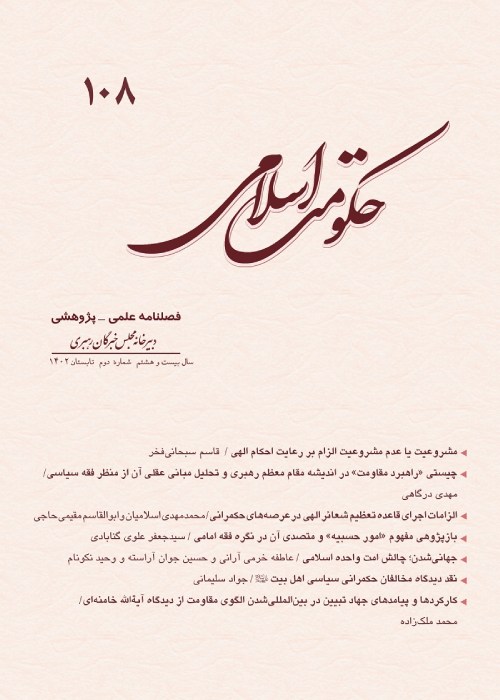How to Apply Religious Sources in the Legal System of the Islamic Republic of Iran in Approaches to Secularization and Islamization
The Constitution of the Islamic Republic of Iran in various cases (for example, Article no, 4 and Article no. 96) emphasizes the necessity of correspondence between laws and regulations and Islamic criteria (standards) on the one hand and their non-contradiction with the prescriptions and principles of the formal religion of the country on the other. Accordingly, there is no doubt that the legal system of the Islamic Republic of Iran should be based on the Islamic sources. However, in order to Islamize legislation in a proper way, it is natural that the mere acceptance of Islamic sources cannot be sufficient and it is necessary to pay close and constant attention to the way they can be applied. For in the process of secularization, too, the authority of religious sources is not obviously refuted and changes or modifications are made only in the case of the logic of understanding religious texts and their implications. Advocates of secularization approach, having accepted the interventions of religious texts in political affairs, have adopted a quite different approach from that of those who support the Islamization approach by making certain modifications in the divine or transcendental implications of traditional (textual) sources, presenting irregular modern interpretations, making use of instrumental rationality, deduction, and expediency which is not based on independent juridical opinion. Drawing upon a descriptive-analytic research method, the research seeks to explain how the application of the legislation sources from two viewpoints, Islamic and secular, has established the fact that the mere acceptance of the authority of religious sources in regulating a legal system is not sufficient and it seems necessary to take into account religious sources on the basis of independent juridical opinion, especially with regard to the most important ends of the Islamic Law in ratifying laws and selecting standard judicial decrees (fatwÁs).
- حق عضویت دریافتی صرف حمایت از نشریات عضو و نگهداری، تکمیل و توسعه مگیران میشود.
- پرداخت حق اشتراک و دانلود مقالات اجازه بازنشر آن در سایر رسانههای چاپی و دیجیتال را به کاربر نمیدهد.


